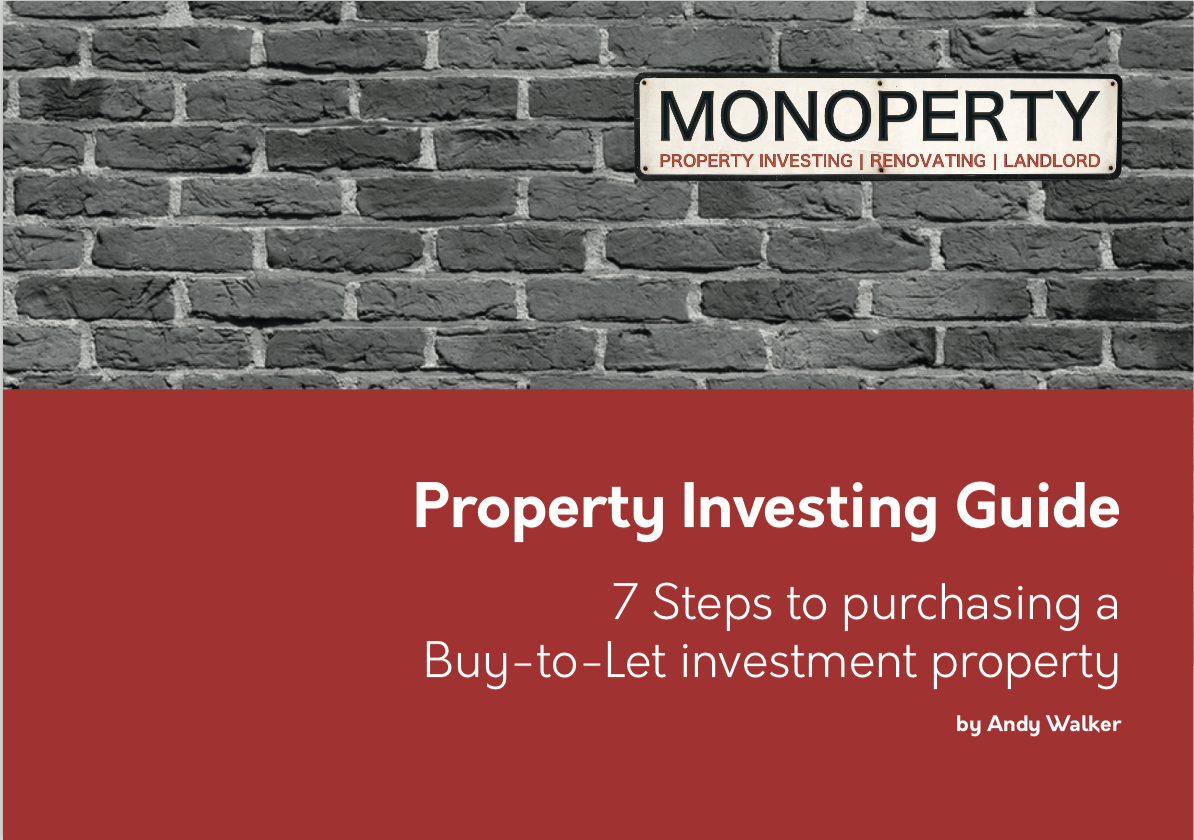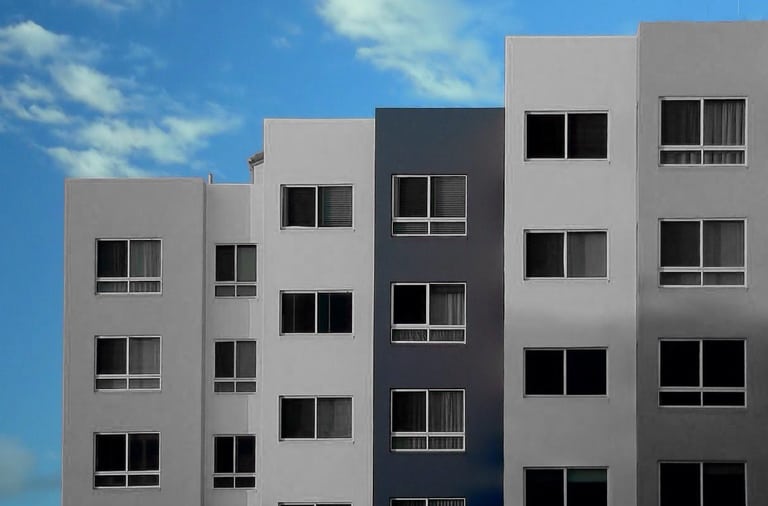So, you’re considering buying a flat and becoming a landlord or adding another property to your portfolio. Buying a flat as a buy-to-let can be an exhilarating yet stressful experience, and there are many things you’ll want to consider before signing that dotted line on your new investment property.
Buying a flat is a great investment opportunity if you know what you’re doing. If you are looking to buy a flat as a buy-to-let opportunity, there are three main pieces of information you will need to consider: cost and return on investment (ROI), location, and demand.
But fear not! The guide below will give you an in-depth look at each of these considerations and how they can impact your potential purchase. Also, keep reading below to learn about the advantages and disadvantages of purchasing a flat as a buy-to-let investment.
Contents
The Costs Associated With Buying A Flat
The first step in purchasing a flat as an investment property is to understand what you can afford. Overall, flats can be appealing to some investors, as they are typically cheaper than houses.
There are numerous factors that come into play when determining the initial costs required to purchase a flat or any property for that matter.
The biggest factor is the deposit, or cash down payment. This initial deposit serves to reduce your mortgage payment, so the more you put down, the lower your monthly payments will be.
Stamp Duty Land Tax (SDLT) Surcharge, a tax that is levied on second homes to investors, is another cost you can expect to incur on the purchase of a flat you are buying as an investment. For more information you can visit the government website here.
Finally, there are a number of fees associated with the home buying process, such as valuation fees, surveyor’s fees, legal fees, and more.
To help you calculate your potential return on investment (ROI), you can follow my guide here.
Considerations For The Location
The location of your investment flat is almost as important as the cost. Choosing a flat in a desirable neighbourhood will increase the likelihood that you will be able to secure a tenant and that you can charge a good amount for rent, which will increase your ROI. It will also increase the likelihood that you’ll be able to sell the property at a future date, should you choose to do so.
When researching areas for your investment flat, consider the proximity to amenities that will enrich the lives of your future tenants. Things like public transportation, supermarkets, nightlife, schools, and green spaces will enhance the area and make it more desirable to a broader group of individuals.
The proximity to these locations also means there are likely more jobs available to future tenants. According to a 2015 study done by YouGov across all of Great Britain, 21% of prospective occupants cited proximity to their job or the job of their spouse as the deciding factor when choosing a home.
Another thing to consider when selecting the neighbourhood for your investment flat is safety. Homes in neighbourhoods deemed as ‘safe’ are more apt to retain their value than those in less than desirable areas. This can help you keep rent at a steady level and increase your chances of securing a tenant that will stay long term.
To check the crime statistics in the area you are looking to invest, you can visit www.police.uk here.
Check There Is A Demand
Another important thing to consider when determining if a flat is the right investment property for you is the current housing demand. The price of properties for sale is directly related to the supply and demand in the area. The Law of Supply and Demand dictates that when there are less properties available, the demand becomes greater – and so will the sale price.
Pay attention to the number of properties in your chosen area. Are there lots of listings, or only a few properties available for purchase? Do the prices seem high in comparison to other areas where there are more properties available? You may need to adjust your search – either by finding a different neighbourhood or by reworking how much you’re willing to invest up front.
I always recommend contacting local letting agents within the area to confirm whether there is a demand for the type of property you are looking to invest in. You maybe considering buying a 2 bedroom flat, when in fact there is more of a demand for 1 bedroom flats. Managing agent’s will be happy to advise and help you with the aim of winning your business once you have completed on a purchase.

If you are new to property investing and would like to learn more, download my free ebook ‘7 Steps To Purchasing A Buy To Let Investment Property‘.
The Advantages Of Buying A Flat As An Investment
There are many advantages to buying a flat when doing so for investment purposes:
- It allows you the opportunity to incur a passive income from the tenants that you let it too.
- The upfront costs are relatively low in comparison to purchasing a house.
- Lifestyle trends make flats more appealing than houses for some groups of people, especially young working professionals who like to live near or within city centres.
- Maintenance costs will likely be cheaper compared to a house. When owning a house, you are the freeholder of the entire estate – including all of the land. But when you’re the landlord of a flat, you’re only responsible for the actual unit itself. This means that you won’t need to spend your weekends mowing the grass and trimming the hedges.
- With that being said, you can expect to incur service charges from the building’s freeholder that can vary in price from a few pounds to a few hundred pounds each month. Be sure to inquire about the monthly service charges when researching properties. These monthly charges can be nominal in comparison to the cost of maintaining many square feet of property each month.
- As flats are cheaper to purchase than houses, it is likely that you will be able to afford another purchase as an investment much sooner. By investing in a different location you can spread your portfolio to help minimise the risk of any voids.
- And finally, strong demand in retro areas can cause prices to soar, providing you conduct your research properly and you buy for the right price.
The Disadvantages Of Buying A Flat As An Investment
There are also some disadvantages to purchasing a flat as an investment property:
As we mentioned before, when you own a house – you own the house and the land due to a law called freehold. This means that you are responsible for the upkeep of not only the house itself but the land as well, which can become expensive.
- Owning a flat dissolves any responsibility to upkeep the land, but that means you’ll need to pay a service charge to the building’s freeholder to take care of it. Some flats have high ground rents and service charges, specifically those that come with a concierge service. It’s important that you have a full understanding of the costs for any service charge and what they include before you buy.
- It can be harder to qualify for a mortgage on certain types of flats as lenders sometimes view flats as a higher risk as an investment compared to houses. This could mean that you will be required to provide a larger deposit to reduce your loan to value (LTV).
- Flats typically have a smaller living space compared to houses which will not appeal to some types of tenants.
- There is less opportunity to add value to a flat compared to a house. As a property investor, I am always looking for ways in which I can add value to a property, whether that’s adding an extension, adding a conservatory, converting the loft or changing the layout to add or maximise the rooms. With a flat, you are typically restricted to the layout, and any planned alterations will need to be approved by the freeholder.
- You will need to keep track of the lease agreement. A lease with less than 80 years can make it harder to obtain a mortgage on the property. If you’re considering investing in a flat for the long term, you should take into account the likely costs of extending the lease, should it approach the 80 years mark whilst you are the owner.
- Ground rents and service charges can increase over time which will have an affect on your ROI. I would recommend having a clause within your tenancy agreement which states that the total rent due will be reviewed in the event of these charges being increased by the freeholder.
Conclusion
Determining if a flat is a good investment property is a decision that is uniquely up to you. I will say that having a mix of properties in your portfolio will allow you a diverse mix of income, as there are times when houses will outperform flats, and vice versa. However, remember to weigh out the cost, location, and demand when making your decision.
Be honest with yourself about what you can afford, and what you feel you can stand to make each month from the rental income.
Choose a desirable location near local amenities to pique the interest of potential tenants. Remember, renters are more apt to rent a flat near their place of employment or in safer neighbourhoods.
Understand the current market and supply and demand so that you can offer a competitive price.
Striking a balance between the three will set you on the right path to a successful buy-to-let investment property.

